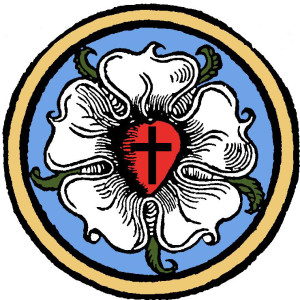
This Sunday is the First Sunday after the Epiphany, the Baptism of our Lord, and I will focus on those readings, here.
The Old Testament lesson for the Baptism of Jesus is Genesis 1:1-5. In the beginning, there was only God - the Triune God, the Father, the Spirit, and according to John 1:1-3, God the Son, the Word, as well. God is the Creator of all things, including light, which was good and was separated from darkness, making both night and day, evening and morning, the first day. (This is why the Jewish Sabbath begins at sundown Friday and goes to sundown Saturday.) The Spirit of God was also hovering over the waters, at Creation, like a bird. Some Jewish rabbis pictured the Holy Spirit as a dove, because of this.
The psalm is Psalm 29, a psalm of David. David calls upon all, in heaven and on the earth, to give glory and worship to the Lord. Six times, the “voice of the Lord” is called “powerful” in what it can do. Three times the Lord is spoken of as “over many waters,” as he was at the Creation. He is “King forever” and gives “strength” and “peace” to His people.
The Gospel lesson is from Mark 1:4-11. In previous weeks, we have heard that John the Baptist was “a voice” preparing the way for the Lord Himself to come to His people, and calling people to a baptism of repentance and forgiveness. John could only baptize with water, but when Jesus came and was baptized, the Holy Spirit was very evidently at work, too. “The heavens” were “torn open” (see Isaiah 64:1), and the Spirit not only was over the waters but “descended on Jesus like a dove,” “anointing Him” for His saving work. (See Isaiah 61:1 and 42:1-2.) The “voice” of the Lord Himself also “came from heaven,” identifying Jesus as His “beloved Son,” with Whom He was “well pleased.” (See again Isaiah 42:1. God cannot say that He is pleased with any of us like that on our own.)
The Epistle lesson is from Romans 6:1-11. Through what Christ Jesus has done for us, and our connection with Him in our own baptism, we now receive the blessings earned for us by Him. Our old “body of sin,” “enslaved to sin,” died with Him, and we were raised to “newness of life.” So, we are to “consider ourselves dead to sin and alive to God in Christ Jesus,” confident of our own “resurrection” on the last day. We still struggle with sin and seek daily to remember our baptism, in repentance, but sin does not need to “reign in our mortal bodies.”
More Episodes
 2024-11-06
2024-11-06
 4
4
 2024-11-06
2024-11-06
 3
3
 2024-11-06
2024-11-06
 3
3
 2024-11-01
2024-11-01
 8
8
 2024-10-22
2024-10-22
 6
6
 2024-10-22
2024-10-22
 3
3
 2024-10-15
2024-10-15
 5
5
 2024-10-15
2024-10-15
 4
4
 2024-10-03
2024-10-03
 6
6
 2024-09-28
2024-09-28
 6
6
 2024-09-28
2024-09-28
 3
3
 2024-09-28
2024-09-28
 5
5
 2024-09-18
2024-09-18
 11
11
 2024-09-13
2024-09-13
 4
4
 2024-09-06
2024-09-06
 4
4
 2024-08-31
2024-08-31
 5
5
 2024-08-31
2024-08-31
 1
1
 2024-08-23
2024-08-23
 11
11
 2024-08-15
2024-08-15
 11
11
Create your
podcast in
minutes
- Full-featured podcast site
- Unlimited storage and bandwidth
- Comprehensive podcast stats
- Distribute to Apple Podcasts, Spotify, and more
- Make money with your podcast
It is Free
- Privacy Policy
- Cookie Policy
- Terms of Use
- Consent Preferences
- Copyright © 2015-2024 Podbean.com






